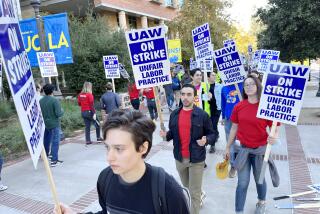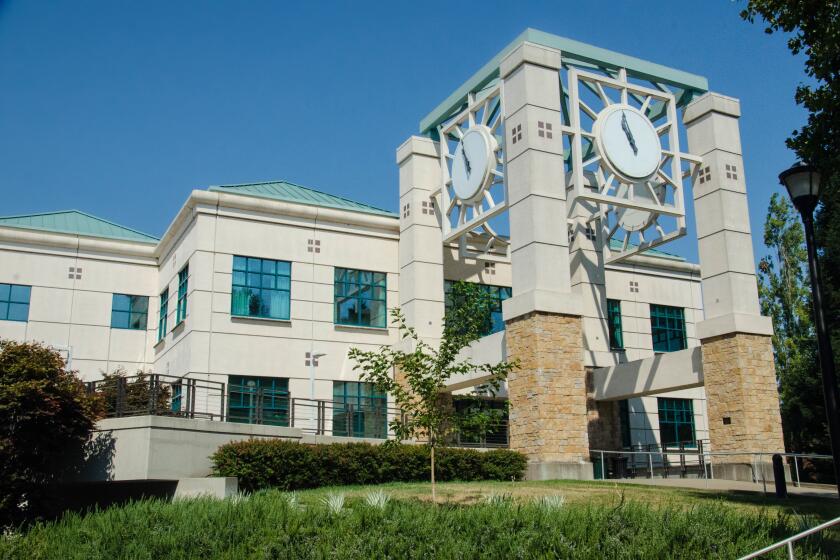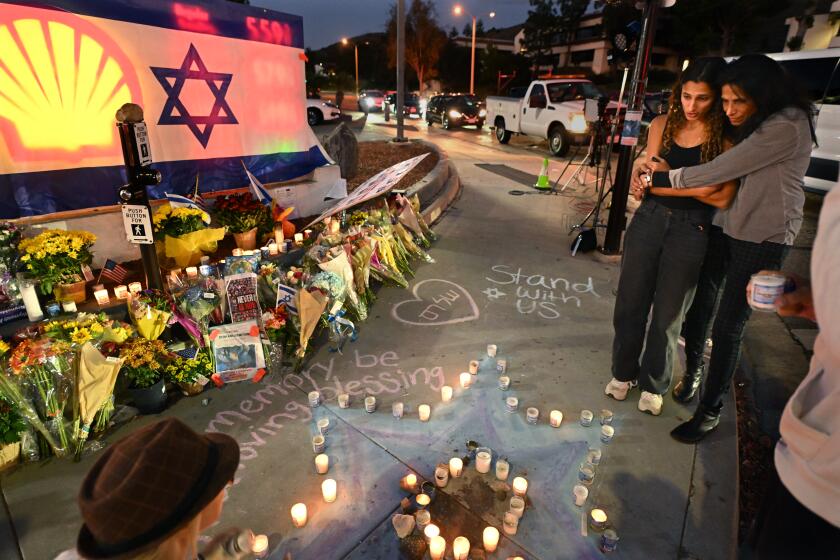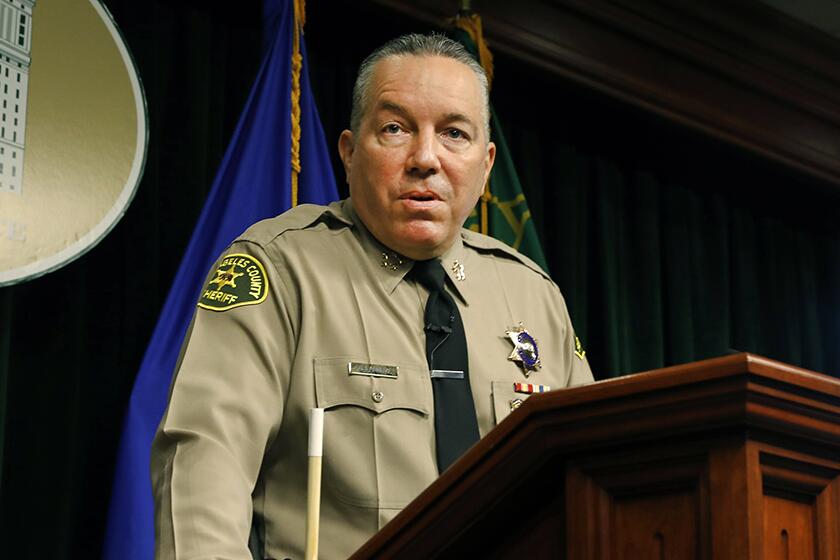Sexual Responsibility Activist Takes His Message to Male Turf
When Adam Arzate was in eighth grade, he came home from school one day to find a bag of condoms waiting for him.
“Hey, what’s up with the condoms?” he asked his mother, Yolanda, who is a community outreach worker at Planned Parenthood of Pasadena. She told him that they were for him or his friends.
“I don’t want to have to go through this later, so I’ll tell you about it now,” she said.
After that, Arzate gained a reputation among his friends as the guy they could ask.
His young days as a sex-education intermediary were training for the now-26-year-old’s current full-time gig as “male advocate” for Planned Parenthood of Pasadena’s Community Outreach Program. His mother told him about the position, which the organization had been trying to fill for months.
Arzate spends the early part of his day walking and driving around, talking to men. He might begin in Pasadena’s Villa Park, chatting in Spanish with day laborers about sexually transmitted infections. He’ll hand out some fliers and condoms. He might make some contacts.
Throughout the day, Arzate will continue to hit spots that men in the area frequent, including community sporting leagues. He has been known to shoot some hoops, then give a talk about safe sex. Some days, Arzate will make three to four presentations to groups or schools that request them.
In a pilot program using federal funds for family planning, Arzate was hired to reach a portion of the population that the nonprofit organization just wasn’t attracting: men. Now, after a year of presentations, basketball games and contacts, Planned Parenthood is seeing results. The group recently made a successful bid for another year of funding.
“We went from seeing very few males to about 110 last year,” said Beth Calleton, chief executive of Planned Parenthood of Pasadena. “I suspect that this year the number will be over 200. But [Arzate] also reaches others who may not become clinic clients, but who may now use condoms.
“It’s hard to get young males to use clinics,” she said. “We wanted to do something more than the usual treatment for [sexually transmitted] infections.”
When he talks to men in the community, Arzate’s charge is to get them to take responsibility for their overall health, not just their sexual health. He also encourages them to be good partners.
“Men have to be responsible. They don’t have to be men having babies left and right with different babies’ mamas,” Arzate said. The ultimate goal is to have men return twice a year for regular health screenings and checkups.
Arzate tells people that finances shouldn’t be an obstacle. As of this month, the state will reimburse Pasadena’s Planned Parenthood for health services for men who qualify. The clinic uses a sliding fee scale based on income.
“Nobody is turned away,” he tells them.
So why is it still so hard to get men to come in?
“Most men won’t get a checkup unless something is seriously wrong. We’re targeting the at-risk population: those who keep having babies before they’re ready and escalating their chances of sexually transmitted infections,” Arzate said.
That’s why having him talk with clients man to man seems to be helping.
At 6-foot-1 and dressed in a guayabera shirt, black pants and black boots, Arzate wears an inch-thick silver chain around his neck. With a matching chain around his wrist and a carefully sculpted goatee, he can blend in as just one of the guys--albeit a knowledgeable one.
That seems to help during talks about another service at Planned Parenthood: vasectomies. He admits that the subject is a tough one to broach among men wary of health services.
“One of the easiest ways to get to them is through a financial point of view,” he said. “I try to open their eyes to how they can save money and be able to provide their families with what they need.”
Arzate cites one client as an example of a triumph.
“There was a 60-year-old from Mexico who had 12 kids from different wives. He was working on divorce No. 4,” Arzate recalled. He asked the man if he planned on having more children. When the man said no, Arzate suggested a vasectomy.
“The guy was convinced that a vasectomy was a castration, because he had worked on a farm in Mexico,” Arzate recalled. But after a long discussion, Arzate won him over. A week later the man began the screening process to qualify for the free service. The next week, he had the vasectomy. Arzate said the man sent him a thank-you note and has appeared for regular checkups ever since.
The day a man gets a vasectomy can be frightening. That’s why Arzate is there, to take a man’s vital signs and to calm the squeamish client before he goes in to see the female nurse.
But there also is work to be done with the younger generation. He recently made a presentation to a group of ninth- to 12th-graders at Rose City High School, a public Pasadena campus that provides alternative learning strategies for those who perform poorly in traditional educational environments.
A table of boys sitting near the front acted uninterested, even when Arzate peppered his talk with slang terms and exchanged colloquialisms for technical terminology. But after the class was dismissed, the boys lingered, asking questions, finding out where the clinics are located.
“His presence makes the boys feel a lot more comfortable; they are able to ask questions and he speaks their vernacular,” said Karen Smith, nurse practitioner at Rose City. “They relate to him. He brings a male perspective that is missing in a lot of homes and where these boys hang out.”
‘Men have to be responsible. They don’t have to be men having babies left and right with different babies’ mamas.’
Adam Arzate, ‘male advocate’ for Planned Parenthood of Pasadena’s Community Outreach Program
More to Read
Start your day right
Sign up for Essential California for news, features and recommendations from the L.A. Times and beyond in your inbox six days a week.
You may occasionally receive promotional content from the Los Angeles Times.






